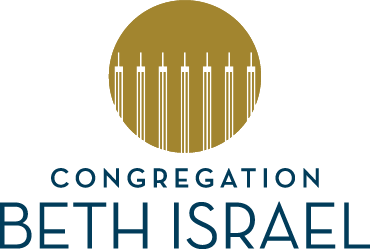I returned from AIPAC Policy Conference with more to think about than ever before. But, like previous years, I came with a frame of reference that I often recommend to anyone who attends and to anyone who isn’t sure about attending.
In Mishnah, we learn that there are four kinds of learners. Two of them are a sponge and a sieve. Though we’ve learned in school to be sponges that memorize everything in order to regurgitate it on a test, sponges are not the best learners. The best learner is a sieve, because as information enters it, only the best of what enters is retained while the rest is released. To be successful at knowing what to retain, we also grow to be discerning learners and listeners. The goal isn’t only to know a lot; the goal is also to do a lot. We can’t do it all, so we must determine what is right and good, and what is our priority and purpose.
At AIPAC PC, there were magnificent speakers followed by hundreds of breakout groups led by exceptional experts on various subjects related to AIPAC’s mission, which is to strengthen the relationship between America and Israel, no matter who is the prime minister or the president, respectively. From so many breakout groups, much was learned. But, the capstone of the Policy Conference was the action items that grew out of our learning. On Tuesday, thousands of Policy Conference attendees visited their congressional leaders to lobby on behalf of the American-Israeli relationship, and to bring the most important issues to their attention. For many new and seasoned AIPAC PC attendees, it proved to be the most inspiring part of the conference.
What was my take-away? In groups of fellow Reform rabbis and cantors, we also discerned what would be our priorities and purpose when we returned to our homes. Together, we parsed what we heard from the mainstage and from the breakout groups. As a group of devoted Jews who see Israel as a homeland and a hope for our Jewish future, especially in the face of rising anti-Semitism, we shared our hopes that our enemies would come to the table to talk about peace, even if we don’t become friends, and to provide relief to Israel, from constant threats on every border. In sermons, blogs, classes, and interfaith work, we’ll aim to keep this subject our highest priority in months to come.
In a time of rising anti-Semitism, Israeli and American elections, and the crisis that Iran poses to the Middle East and the world, the Policy Conference proved its worth many times over. Though AIPAC draws criticism from those who don’t attend or from those who don’t see themselves as AIPAC members, the truth is found in what you discern by listening. In coming months, our local AIPAC leaders will bring to Houston, significant speakers on subjects we need to learn about, and you should come. Be my guest and then we’ll talk about the program later. We can discern the take-aways together with a shared purpose in prioritizing what to do for the sake of Israel and our Jewish future. It’s okay to disagree as long as we’re civil and respectful. As a rabbi, I’m a teacher, but the best teachers are always learning, too.
This week, let’s pray for the peace of Israel, the relationship Israel enjoys with America, and the well-being of all people who place their hope in a future that includes the land and people of Israel.

